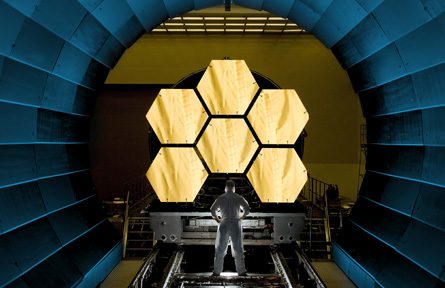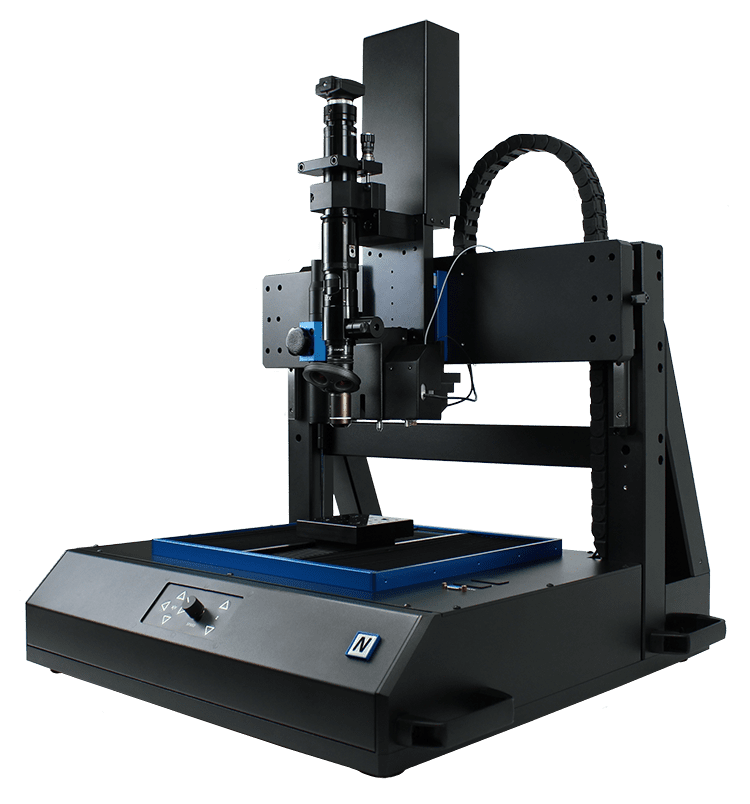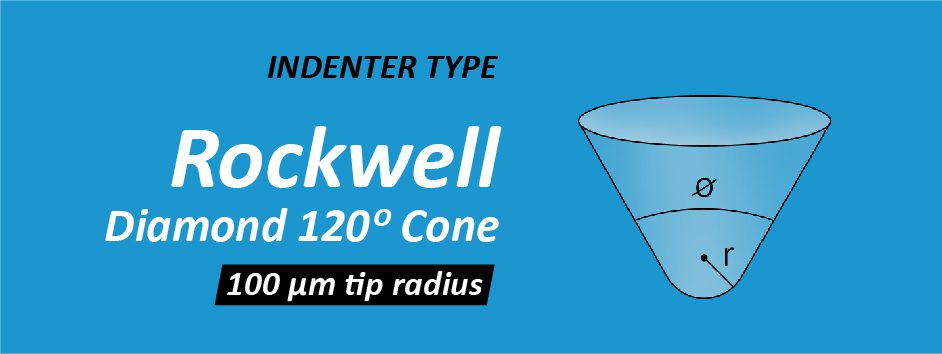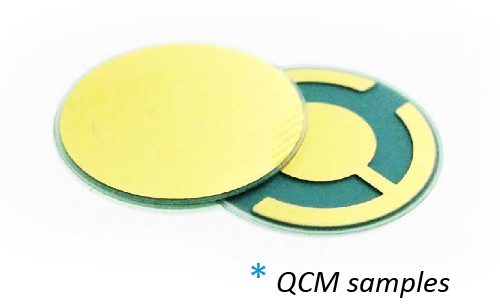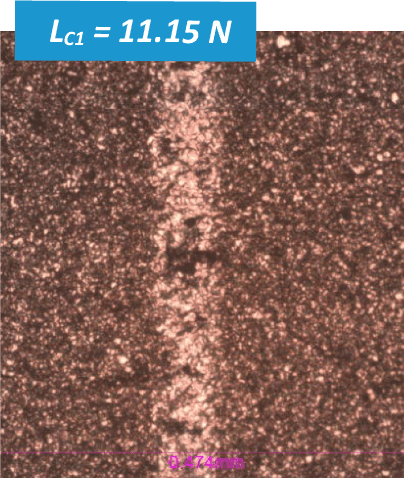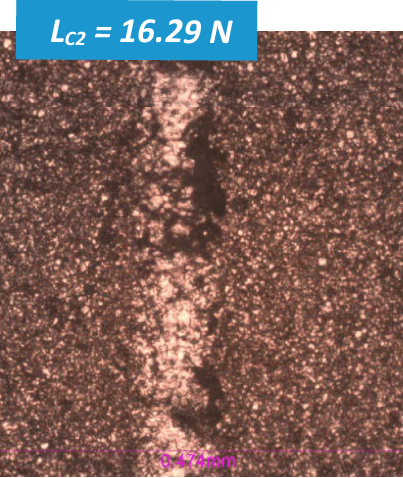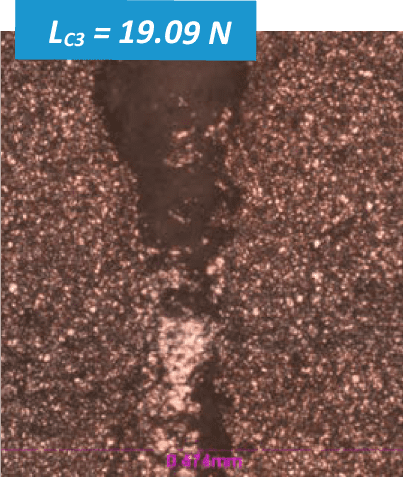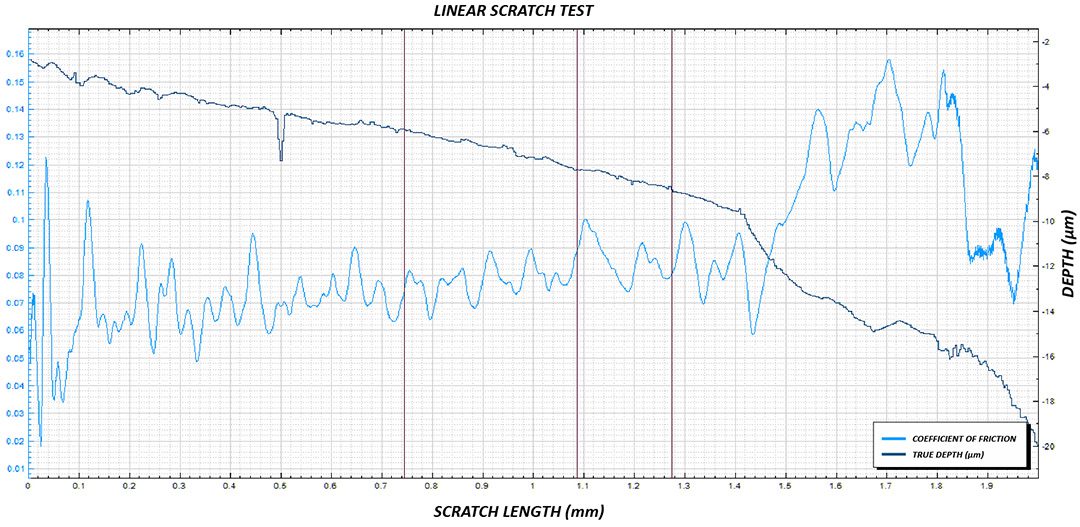INTRODUCTION
The Quartz Crystal Microbalance (QCM) is an extremely sensitive mass sensor capable of making precise measurements of small mass in the nanogram range. QCM measures the mass change on the surface through detecting variations in resonance frequency of the quartz crystal with two electrodes affixed to each side of the plate. The capacity of measuring extreme small weight makes it a key component in a variety of research and industrial instruments to detect and monitor the variation of mass, adsorption, density, and corrosion, etc.
IMPORTANCE OF SCRATCH TEST FOR QCM
As an extremely accurate device, the QCM measures the mass change down to 0.1 nanogram. Any mass loss or delamination of the electrodes on the quartz plate will be detected by the quartz crystal and cause significant measurement errors. As a result, the intrinsic quality of the electrode coating and the interfacial integrity of the coating/substrate system play an essential role in performing accurate and repeatable mass measurement. The Micro scratch test is a widely used comparative measurement to evaluate the relative cohesion or adhesion properties of coatings based on comparison of the critical loads at which failures appear. It is a superior tool for reliable quality control of QCMs.
